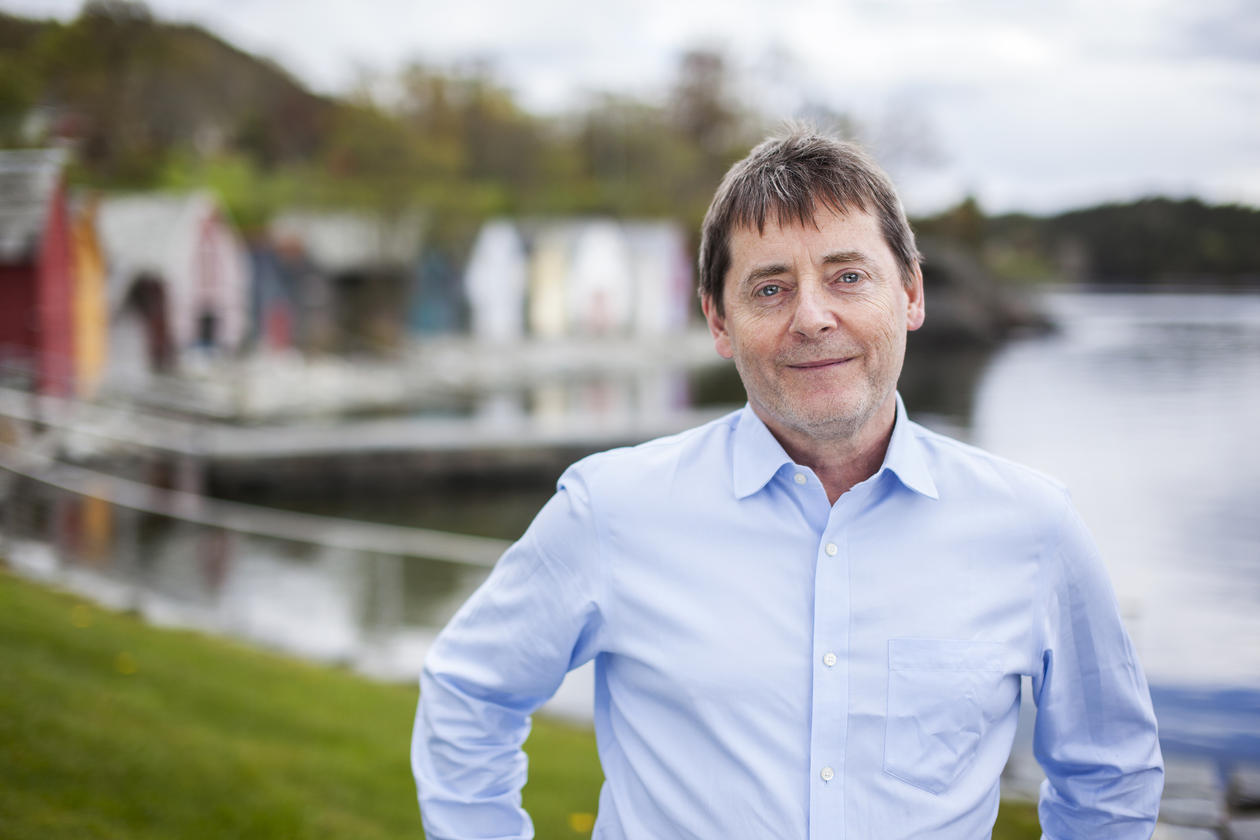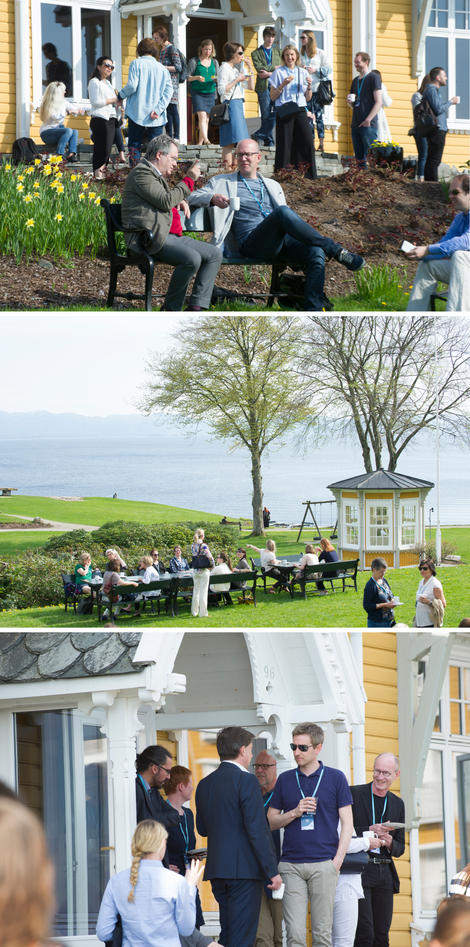Strategy meeting in the war against cancer
Outside the birds are twittering in the warm sun. Inside are cold facts on biomarkers and immuno therapy, including research which may lead to cancer testing through urine samples. CCBIO's Annual Symposium offers a widespread program.

Main content
"CCBIO are doing impressive research, they are at the level of the best in the USA", says cancer researcher Marsha Moses. She is from Harvard Medical School and world leading in her field - cancer detecting biomarkers in urine.
Battle by battle in the war against cancer
Moses is one of more than 200 cancer researchers gathered at Solstrand Hotel outside Bergen at the CCBIO Annual Symposium. The meeting serves as breeding ground for sharing knowledge on biomarkers, or the unique fingerprint of tumors. By studying them, we can learn more and more about how the different types of cancer develops, what causes tumors to grow - and not least, what is the most effective and tailored treatment method.
"Meeting like this is very important for us as cancer researchers to keep updated", says CCBIO Director Lars A. Akslen.
"To be able to win the war against cancer, battle by battle, we need to collaborate with the best in their fields. Meeting points like this are crucial to establish new networks and form new research collaborations. That is a great way to improve ourselves and learn more. You know, we do research on the microenvironment of tumors and what that means to the development of the diseases. Without making further comparisons, this meeting can be seen as CCBIO's microenvironment", he smiles.
Akslen is concerned with new thinking, also in research.
"We should never stop thinking outside the box. Researchers all over the world will beat cancer by pushing ourselves ahead. We must cooperate, and we will see results. And we need to combine established, solid research methods by thinking new thoughts".
Pee on a stick - are you cancer free?
One who has dared to think outside the box, is Professor Marsha Moses from Harvard. She investigates protein markers in urine. The aim is to be able to diagnose cancer at a very eary stage.
"Even the less good drugs can function well against cancer, when taken early enough", she explains.
"But eventually it will be too late. That's how it started for our part, we wanted to find methods to reveal cancer at an early stage. We found that protein in urine is a goldmine to find biomarkers. And taking a urine sample is so simple and painless, Moses explains. She is leader of the Vascular Biology Program at Boston Children’s Hospital.
Marsha Moses and her team are already in progress of commercialising the cancer tests.
"I am optimistic about this field, and I am certain that we in the future will be able to use urine samples to check for cancer at an early stage. That will have a major impact on society's health costs", she says.
Follow the money
Costs have in recent years become an issue in cancer treatment. Due to extensive research, more and more effective drugs have been developed. But they are costly, even for one of the world's richest countries. Giving someone more of the pie, will inevitably lead to less for other groups.
John Cairns from the London School of Hygiene & Tropical Medicine is affiliated to CCBIO as their expert in health economics. He also made the trip to Solstrand today.
"It is a fact that health budgets are not inexhaustible, even in Norway", he says.
"That is why these debates will be more frequent in the time to come. Everyone can symphatize that it is devastating to be diagnosed with a fatal disease, to know there are drugs out there that can give you a chance to live on, only to be denied access to it because the government has not approved use of the drug. It is easy to understand that people get outraged. Nevertheless, most will also understand that other patient groups need money for treatment. And most people are usually concerned with more isssues than melanoma, they would also like to have better roads, more emphasis on good schools, lower taxes, that sort.
The problem is naturally that those who can afford it, always will have access to the most expensive and effective cancer drugs, leaving the rest to make do with the second best. Not many would prefer such a society, I think. So you see, there are many things to consider when it comes to the public spending of money and cancer treatment".
Cairns' research focus is how biomarkers can improve the cost-effectiveness of cancer treatment.
"We hope to be able to map a patient's biomarkers to identify the correct treatment for the specific cancer type of the individual patient. Then we would avoid much time and resources spent on trial and error", he explains.
"Biomarkers may be the gateway to more and better cancer treatment for our money. We are at the threshold, and I am eager to see the continuation of this", Cairns concludes.
Now there is a break in the program, and dedicated researchers are gathering in small groups outside. They are squinting against the sun and eagerly discussing. Laughter is frequently heard and coffee cups are clattering. Even generals in the war against cancer occasionally need reconnaissance interspersed with sunshine and birdsong.



